
Politics
17:55, 11-Aug-2017
Kenya awaits election results as opposition claims victory
CGTN
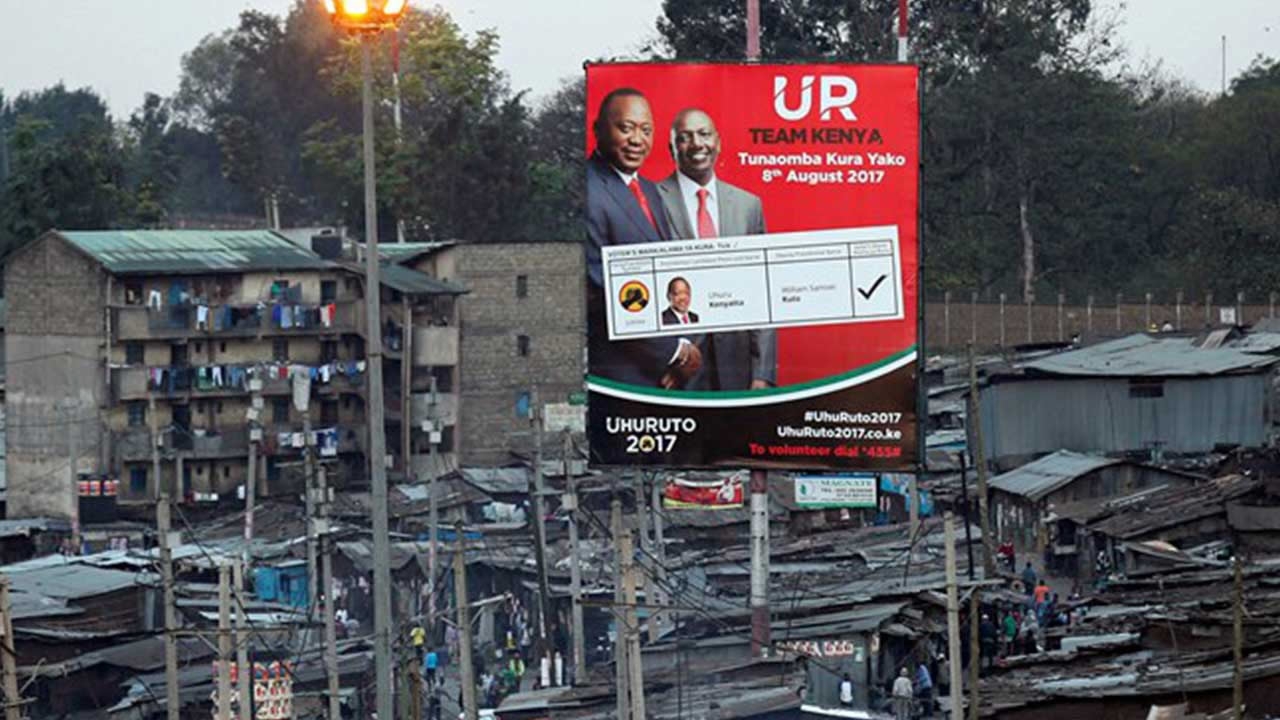
Kenya's election commission was preparing to release final results Friday from a hotly-contested vote in which the opposition has already claimed victory, fanning tensions in the east African nation.
The National Super Alliance (NASA) opposition coalition on Thursday demanded that its candidate Raila Odinga be declared president, claiming massive fraud was behind preliminary results that placed him far behind incumbent Uhuru Kenyatta.
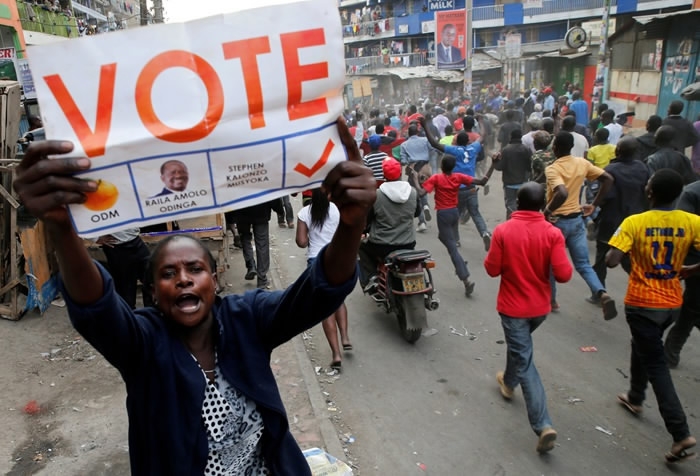
A supporter of Kenyan opposition leader Raila Odinga carries a banner and shouts slogans in Nairobi, Kenya, August 10, 2017. /Reuters Photo
A supporter of Kenyan opposition leader Raila Odinga carries a banner and shouts slogans in Nairobi, Kenya, August 10, 2017. /Reuters Photo
Odinga rejects preliminary results
Foreign observers praised a peaceful, credible voting process, but the mood quickly turned sour when Odinga rejected the results after only a few hours of counting.
Odinga first complained the electronically transmitted results were not being backed up by the required forms. He later unveiled details of an alleged hacking attack to manipulate results.
NASA then doubled down with a claim the election commission (IEBC) was concealing results contained on its server that, it said, showed Odinga to be the winner.
"We demand that the IEBC chairperson announce the presidential election results forthwith and declare Raila Amolo Odinga... as the duly elected president," said one of NASA's leaders, Musalia Mudavadi.
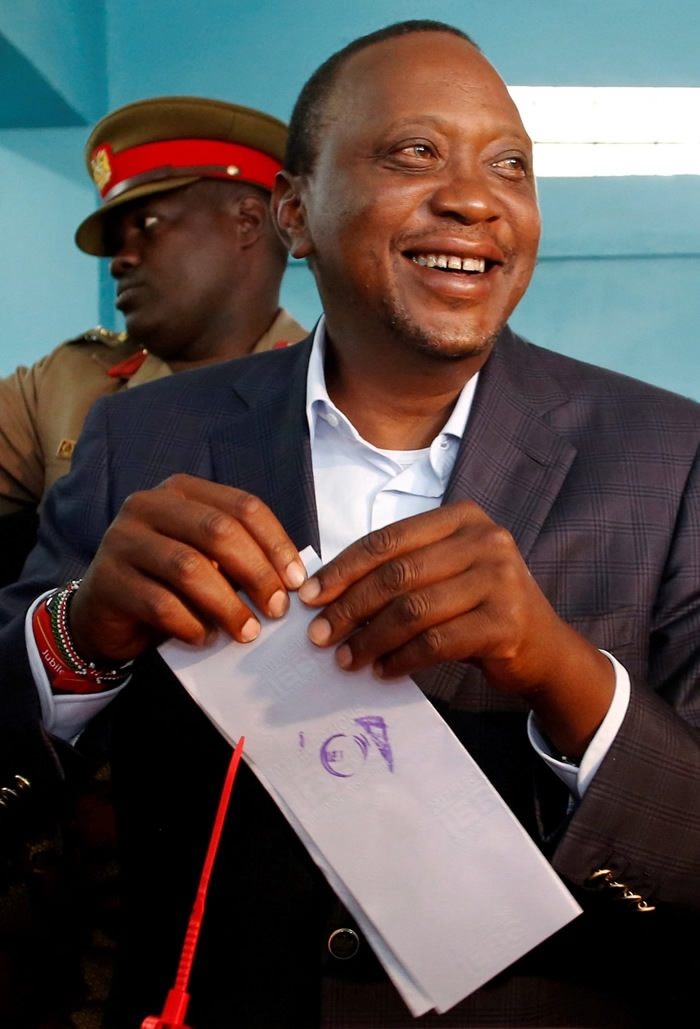
Kenya's President Uhuru Kenyatta casts his ballot inside a polling station in his hometown of Gatundu in Kiambu county, Kenya, August 8, 2017. /Reuters Photo
Kenya's President Uhuru Kenyatta casts his ballot inside a polling station in his hometown of Gatundu in Kiambu county, Kenya, August 8, 2017. /Reuters Photo
The charge ratcheted up tensions that have seen Kenya on a go-slow since voting day on Tuesday, with many businesses shut, civil servants staying at home and streets largely empty. The final results may be released in the afternoon.
"Any attempts to pressurize the IEBC, as being witnessed, are irregular, and ... may stoke the flames in an already tense situation. We have said before, and reiterate, that any candidate with grievances pursue established avenues of redress," the Daily Nation said in an editorial. "This process (of determining final results) is still ongoing, and so there are no election results on which to file a petition."
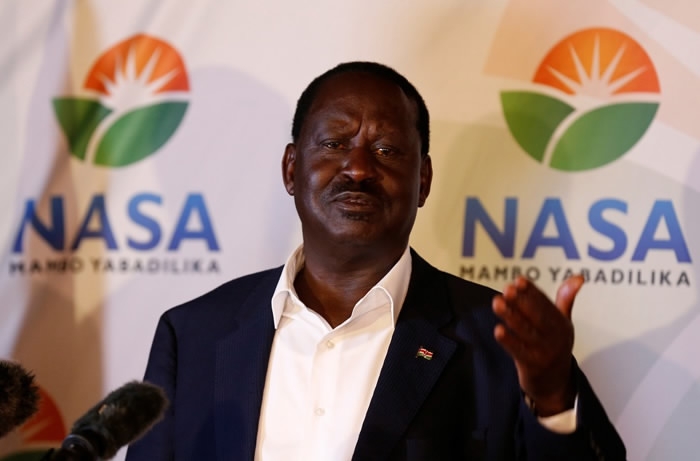
Kenyan opposition leader Raila Odinga addresses a news conference on the presidential election in Nairobi, Kenya, August 9, 2017. /Reuters Photo
Kenyan opposition leader Raila Odinga addresses a news conference on the presidential election in Nairobi, Kenya, August 9, 2017. /Reuters Photo
Will 2007 violence repeat itself?
Protests have remained isolated to Odinga's strongholds in Nairobi slums – where police shot dead two protesters Wednesday – and the western city of Kisumu. But memories are still raw of a disputed poll that led to two months of ethno-political violence in 2007-8, leaving 1,100 dead and displacing 600,000.
While veteran opposition leader Odinga, 72, also claimed 2013 polls were stolen from him, he took his grievances to the courts and ended up accepting his loss.
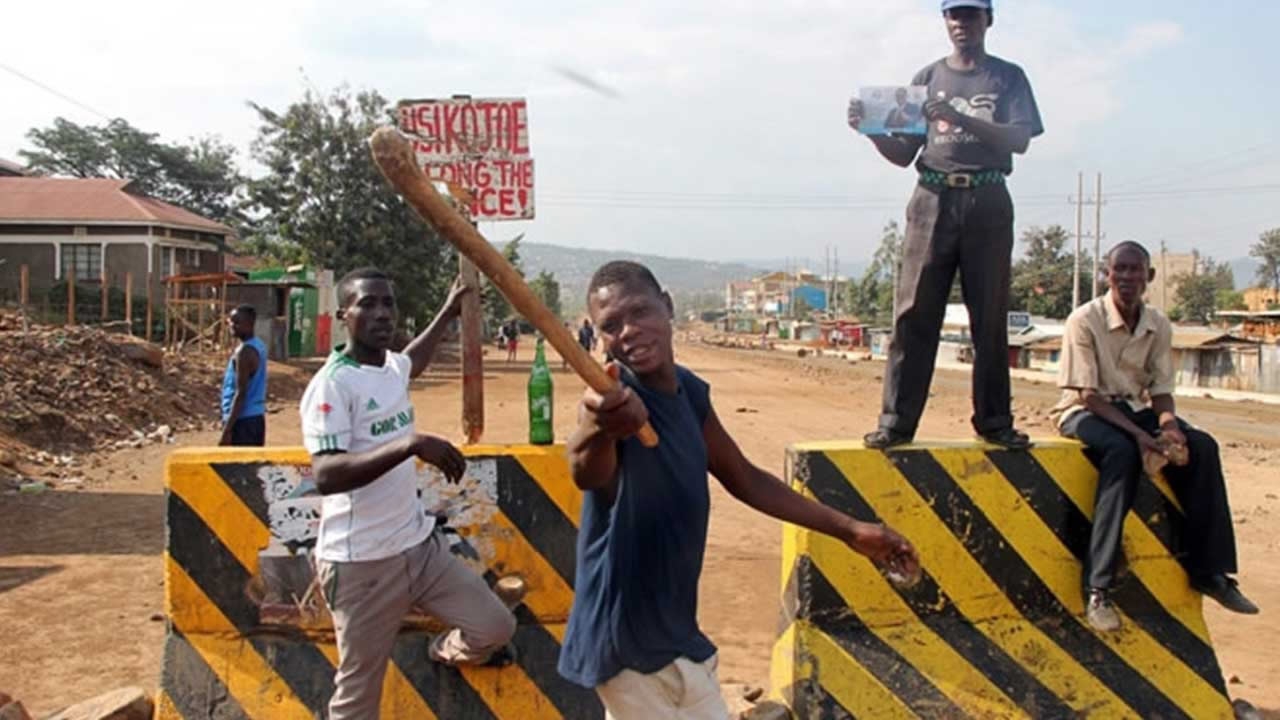
"We do not want to see any violence in Kenya. We know the consequences of what happened in 2008 and we don't want to see a repeat of that," Odinga told CNN in an interview. But he repeated his assertion that "I don't control anybody. People want to see justice."
Kenyatta looked set for certain victory, with eight million votes to Odinga's 6.7 million, according to the IEBC public website whose results are being cross-checked against polling forms from constituencies.
However, NASA provided documents purportedly obtained from IEBC servers via a "confidential source" showing that Odinga had 8.04 million votes, leading Kenyatta on 7.75 million.
Source(s): AFP

SITEMAP
Copyright © 2018 CGTN. Beijing ICP prepared NO.16065310-3
Copyright © 2018 CGTN. Beijing ICP prepared NO.16065310-3